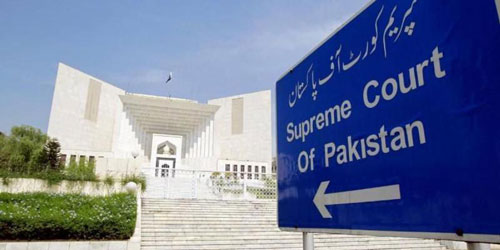Imran’s plea challenging NAB amendments
The Supreme Court on Tuesday summoned 23 years’ case records, from 1999 to June 2022, from the National Accountability Bureau (NAB) on a petition filed by PTI chief Imran Khan challenging the recent amendments to anti-graft laws.
Chief Justice of Pakistan Umar Ata Bandial passed the orders after a three-member bench, comprising the CJP, Justice Ijazul Ahsan and Justice Syed Mansoor Ali Shah, heard the plea that called the new act a “violation of fundamental rights”.
During the hearing on Tuesday, the top judge directed NAB to submit details of all the references filed so far along with the investigations completed ever since the amendments were introduced.
“There are several mafias in Pakistan […] I don’t want to take names because corruption is present everywhere in the world,” Justice Bandial said, observing that there were some defects in the accountability laws, while some amendments were of a “very serious nature”.
“The court has to create balance,” he added.
At the outset of the hearing, Justice Shah asked: “On the basis of which constitutional provision should the law be declared null and void?”
Imran’s lawyer Khwaja Haris, while resuming his arguments, replied that the new NAB amendments had made the definition of benamidar very difficult.
The case, he contended, was concerned with politicians involved in corruption. “Wherever public money is concerned, the matter falls under the category of fundamental rights.
“Even people who are public officeholders, matters related to them fall under the category of fundamental rights,” Haris said, pointing out that benami was also a concern in cases pertaining to fake bank accounts.
At one point during the proceedings, the PTI lawyer also said that economic policies should be drafted in a manner to prevent them from affecting fundamental rights.
Here, the CJP said that economic policies was not in the apex court’s purview.






